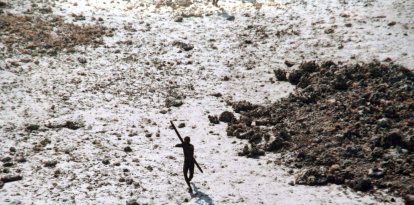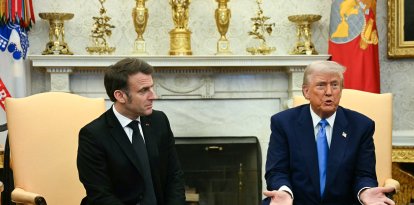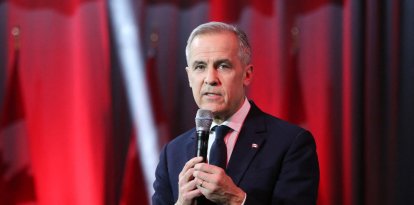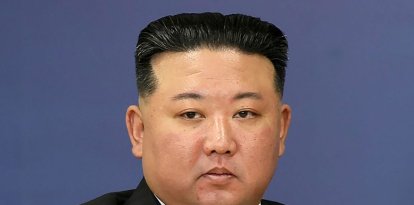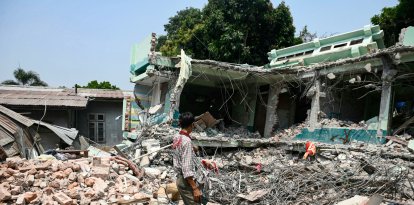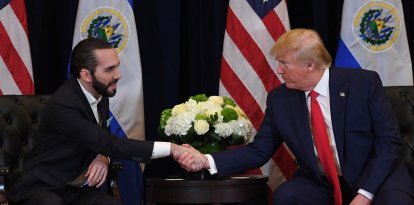An island of reason in a sea of irrational hatred: Palestinian who risks his life to condemn terrorism
In an interview with The Free Press, a young West Bank native who studied and worked in Israel is threatened for voicing his forceful opposition to the Oct. 7 massacre and criticizing the Palestinian leadership. This is his impressive and exemplary life story.
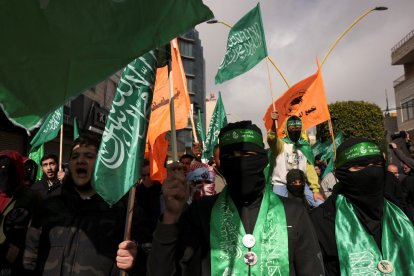
Pro-Hamas demonstration in the West Bank.
A young Palestinian man decided to risk everything, including his own life, to condemn terrorism and tell the truth about Hamas and the Palestinian Authority in an interview with journalist Bari Weiss of The Free Press.
The young man, a West Bank native who preferred to remain anonymous for security reasons, earned a scholarship to study abroad and earned three degrees from three different countries and then worked at a technology company in Israel.
Despite managing to have a successful life thanks to his enormous effort, the Oct. 7 massacre in Israel ruined it. The horror and pain he felt that day contrasted with the festivities that took place in his community in the West Bank.
The young man told during the interview that hundreds of people unfollowed him on social media for posting that he felt "sad" about the massacre, for expressing his opposition to terrorism and for asking for the well-being of his friends, colleagues and the rest of those affected, among other similar statements.
After expressing his feelings on social networks, many began to label him as a "traitor," which, he explained to Weiss, in the West Bank means that they wish to assassinate him.
Despite everything, this brave young Palestinian maintained that he does not regret making those posts, as he considers that remaining silent would put him on the same level as those who committed the brutal massacre in southern Israel, where he could no longer return since Oct. 7 due to the closure of the crossings and the suspension of work permits implemented by the Jewish state.
The young man commented that the vision he had of Jews was not good, since where he lived the image of Jews was used to scare people, especially children, because they were only related to the military. He added that it was only at the age of 27 that he was able to meet an Israeli without a military uniform.
The book that changed his life
His perspective on Jews changed especially in his teenage years, when he read a book by Viktor Frankl, a renowned Austrian Jewish neurologist, psychiatrist and philosopher who survived the Holocaust, as it was the first time he learned about the crimes perpetrated by the Nazis.
The young man explained that the book also left him with a lesson about life, as he learned that a person can have everything taken away from them except their attitude and reaction to a certain situation, which gave him an incentive to excel in his studies.
'Culture shock'
The young man commented that he traveled abroad for the first time 12 years ago and felt what he described as "culture shock," as he was able to meet people from different countries, ethnicities, religions (or non-believers), and even homosexuals.
His experience abroad, he indicated, led him to ask himself hard questions about various topics that he was not allowed to ask on the West Bank, and he was able to open his mind in many ways, thanks in large part to the meditation he did at a Buddhist temple.
Surprisingly, or not so surprisingly, the young Palestinian first learned about the large number of Israeli startups while studying in South Korea. He stressed that he was astonished by the fact that in such a small country there was the largest concentration of startups in the world.
Help from a famous Israeli musician
After his time abroad, the young man returned to the West Bank and then did a master's degree at Tel Aviv University after applying for an Israeli program dedicated to helping Palestinian students intern in companies in Israel.
The young man said the person who interviewed him for the program was the first Israeli without a military uniform he met and with whom he maintains a great friendship to this day.
Due to the large amount of time it takes for a person to travel from the West Bank to Tel Aviv, in part due to the rigorous security checks at the border, the young man tried to rent an apartment in the Israeli city, which was difficult due to the distrust of landlords in the wake of the conflict in the region.
The young man commented that due to difficulties in securing housing, he was forced to live in around 12 different apartments in a single year, most of them being sublets from his friends and even on a few occasions he had to sleep on the street.
While this situation might have frustrated many, this young Palestinian found a positive side to it, as he explained, it allowed him to meet many Jews from different backgrounds with whom he even celebrated Shabbat and various Jewish holidays.
Something curious that happened to him in Israel was when he ran out of money to continue studying at Tel Aviv University, so he could no longer attend the institution. Desperate, the young man sent emails to 100 people asking for help, and only one responded: famous Israeli singer David Broza, who paid for his studies and allowed him to stay in his home until the university granted him a dormitory, also paid for by the musician.
A 'traitor' for opposing terrorism
The young man maintained that all his effort was aimed at giving hope to others like him, and that is why he never gave up despite the difficulties.
Regarding Oct. 7, he clarified that he is Palestinian and proud to be so, but noted that on that day he felt shame.
"It was horrible," he expressed, as he thought about his friends and all his Israeli acquaintances, so he sent messages by phone to find out if they were safe, and fortunately they were all fine, he said.
Seeing the reactions around him, very different from his own, the young man said he does not understand how anyone could justify such an attack.
He said he posted a message on social media saying that he is Palestinian and opposes terrorism and wishing that all his friends and acquaintances were alright. And he added that he did it so that people would see that there is something different than what was seen on Oct. 7. "It was something I had to do," he said.
It was then that his Israeli friends appreciated his publication but, as mentioned above, his brothers Palestinians began calling him "traitor", which in the West Bank means a death threat, and it is for that reason that he has since lived in fear.
The young man explained that people who are considered traitors are usually slaughtered by shooting or by hanging without trial and without intervention by the authorities, and the body is left on display as a warning to others.
While he deleted the post, he said he has no regrets about expressing what he felt at the time. "I did nothing wrong. I condemned a terrorist group who was the main reason for the horrors, for the death, for many people losing their loved ones, their livelihood. Many Gazans were killed, buildings were destroyed, destruction on both sides. And there is only one side to blame. There’s one party to blame, which is Hamas," he said. And he added that this terrorist group "is the same as Hezbollah, the same as the Yemeni Houthis, they are just proxies of Iran. And they don’t really care about the well-being of the Palestinian people. Death benefits them."
Not giving up hope
Although he was very happy with his life and never wanted to leave the West Bank, everything changed on Oct. 7 after the post he made after the massacre, and now he does not feel safe. Therefore, he now plans to apply for asylum abroad to continue his life elsewhere.
"I want to be in a place where I can speak up without fearing for my life," he said.
Despite everything, the young man is not losing his optimism. While he acknowledged that it will take many years to overcome what has happened, there is still hope for a better future in which Israelis and Palestinians can coexist. "We should not allow Hamas to succeed in destroying this hope," he said.
RECOMMENDATION
